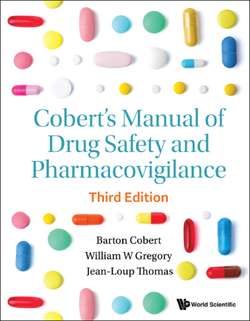Читать книгу Cobert's Manual Of Drug Safety And Pharmacovigilance (Third Edition) - William Gregory - Страница 42
На сайте Литреса книга снята с продажи.
Frequently Asked Questions
ОглавлениеQ: Is it really worthwhile reporting another penicillin rash or some other clearly well-described adverse event? Isn’t this a waste of time, money, and resources that could be better used elsewhere?
A: Yes, that is probably true. Known reactions for old drugs in the approved patient populations using the approved formulation, dose, and route of administration do not really add much to the general knowledge of drug safety. It probably is better to use limited resources looking at newer drugs or patient groups where safety is less well characterized.
This is not what most health agencies (officially) say for the understandable reason that, once they ask healthcare professionals and consumers to start making judgments about what is worth reporting and what is not, they begin the slide down the slippery slope. Their reasoning is that it is better to over report, even known AEs on old drugs, than under report and risk missing something. After many years on the market, even old drugs can have new data found on AEs and in particular drug interactions. Whether enough resources will remain available for this remains to be seen.
Q: Does a doctor or other healthcare professional have the right to report a patient’s medical and health information to a private company without the consent of the patient?
A: A good and difficult question. In many jurisdictions (including the US), drug safety reporting by healthcare professionals to companies and the health agency is both legal and encouraged even without the patient’s consent. Disease registries have been in place for decades (e.g., for syphilis) in which physicians and hospitals must report cases to the authorities. In other countries, however, the laws can be complex, and some level of consent may be required, particularly if lab tests, X-rays or scans, or other complementary data are also to be sent. The healthcare professional should check on the requirements and limitations in his or her country. In the EU, a major change in data security and privacy is underway touching all aspects of life, not just drug safety. How this will unfold remains to be seen.
Q: Are consumer reports really worth collecting?
A: Clearly, the information collected from consumers is less useful and less able to be acted on than information healthcare professionals supply. Many reasons account for this: imprecise terminology, lack of complete data, misunderstanding by the patient of complex medical issues, and so forth. This is particularly true for OTC products where there is no healthcare professional intervention in most cases, as the patients self-diagnose and self-treat. Having said all that, useful information can still be obtained that will lead to a signal and further investigation. This is probably not an efficient way to do this, however. In addition, companies handling consumer information, particularly via telephone calls, note that it is time-consuming and requires great diplomatic skills from call center workers. Consumers tend to be more talkative, less precise, and more available than medical personnel who want to report the information and get on to their next patient. Again, it is hoped that electronic health records will make this system obsolete in the future.
